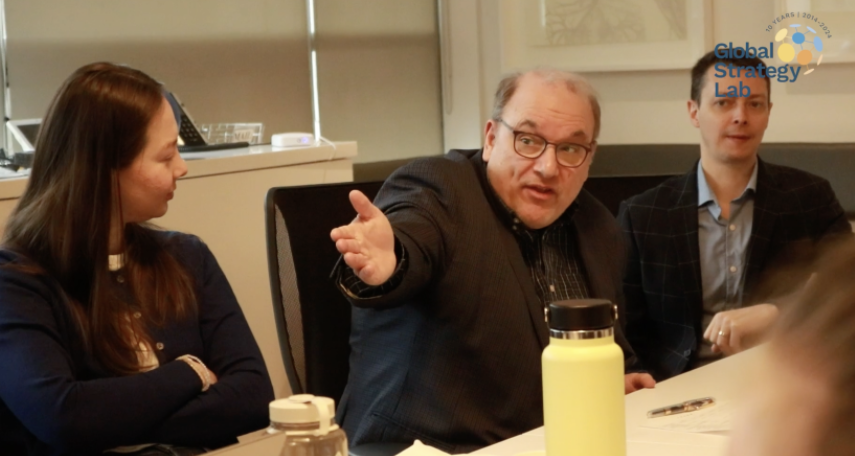Navigating Independence and Influence: The Role of Chief Medical Officers in the UK and Canada
Authors: Sepinoud Siavoshi, Julia Rodgers, Patrick Fafard

The role of the Chief Medical Officers (CMO) is crucial in guiding public health policies, especially in times of crisis. But the CMO role is not well understood. In this post we’ll compare the CMO role in Canada and the UK, dive into its variations within the UK, and explore the challenges faced by CMOs during the recent COVID-19 pandemic.
Comparing the UK to Canada
In Westminster-style political systems, such as the UK, Canada, Australia, and New Zealand, the role of the CMO encompasses four distinct yet interconnected functions:
- Scientific Advisor: CMOs provide expert scientific advice to the government, helping shape public health strategies based on evidence and data.
- Public Communicator: They are often the public face of health information, sharing important updates and recommendations with the public, especially during health crises.
- Health Advocate: CMOs advocate for policies that promote public health, sometimes challenging government policies when they conflict with health evidence or principles.
- Manager: In many jurisdictions, CMOs oversee public health operations, managing teams and resources to ensure effective health delivery and crisis response.
Each of these roles can create tensions within the CMO’s function, particularly because they at times conflict with the expectations of neutrality and public service. Navigating this complex environment requires skillful communication, networking, and diplomacy.
While CMOs exist in many jurisdictions, the structure of the role varies considerably between subnational jurisdictions as well as from country to country. Our research suggests that, unlike the Canadian case where the roles and responsibilities of CMOs are defined by legislation, in the UK the role is more flexible with important differences between the devolved nations and England.
Comparing The Role of Chief Medical Officers in the UK and Canada
Balancing Act: Independence vs. Government Loyalty
One of the central findings from the UK is the tension between the CMO’s role as an independent scientific advisor and their status as a senior civil servant within the government. CMOs are expected to offer impartial, evidence-based advice on public health while simultaneously operating within the policy frameworks of the government-of-the-day.
In emergencies, the complexity intensifies. CMOs are tasked not only with advising on scientific matters, but also with publicly communicating government policies. The need to maintain a perception of scientific independence while fulfilling government objectives, which becomes especially difficult during public health crises. The expansion of their responsibilities often places them in the spotlight, requiring them to navigate between being the face of government policy and maintaining their reputation as independent health experts. This is a delicate balancing act that requires careful management and strategic diplomacy.
The dual role can be particularly challenging during crises like the COVID-19 pandemic, where CMOs became central figures in daily press conferences. While they provided essential guidance on public health measures, they were also under scrutiny, with their messages often shaped by political considerations. This heightened visibility complicates their ability to maintain an independent stance, leading to potential conflicts between their professional duties and the demands of government communication strategies.
Flexibility and Ambiguity: A Double-Edged Sword
The UK CMO role is marked by a significant level of flexibility, a result of ambiguous wording in legislation and the devolved nature of health policy across the UK. This flexibility allows CMOs to respond more dynamically to local public health emergencies, adapting their actions to the specific needs of different regions.
However, this flexibility also has its drawbacks. The varying interpretations of the CMO role across different regions has the potential to create challenges when coordinating national health responses. For example, unlike England and Scotland, Wales and Northern Ireland have a more direct role in the policymaking process. These different jurisdictional expectations of the role create a potential lack of uniformity when approaching a public health crisis. This divergence can make it harder to implement a cohesive national strategy during emergencies, leading to potential inefficiencies or confusion.
Conclusion
The role of CMOs in the UK is unique and complex, characterized by a dynamic interplay between scientific independence, public service duties, and political realities. Our research points to the importance of effective communication, strategic networking, and diplomacy in navigating the tensions inherent in the role. As public health crises become more frequent and more visible, the role of CMOs will continue to evolve, requiring them to balance the competing demands of scientific integrity and governmental loyalty. Though the CMO role differs from country to country, the lessons learned from the UK experience can offer valuable insights for those facing similar challenges in the leadership of public health systems.
Learn more about the research on CMOs.